Autism and Potty Training: A Parent’s Guide
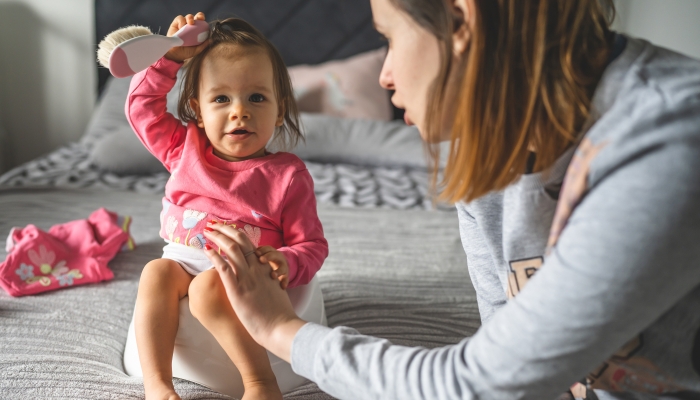
- All children toilet train on a different time schedule.
- Children with autism commonly have delayed potty training.
- Sensory issues may also interfere with the toilet training process.
- Fortunately, there are strategies to help successfully potty train autistic children.
All children have different timetables and responses when it comes to potty training.
Our oldest daughter practically taught herself how to use the potty when she was 18 months old.
On the other hand, one of our grandsons was four years old when he was finally able to have a bowel movement on the toilet. Although he had the gross motor skills to toilet train, he refused to have a BM on the potty. No amount of incentives or creative toilet training tips would motivate successful poop training.
As you can see, the process of toilet training children is unique to each child.
Parents with children with autism spectrum disorder may face additional potty training challenges, with toileting delay likely.
You should not compare your autistic child to other children during the toilet training process. Many children with autism may be unable or unwilling to tackle this new skill on a typical timetable for this developmental milestone.
Learning how autism can affect toilet training can help you better understand when your child will be ready to begin the potty training process, along with tips for success.
How Can Autism Affect Potty Training?
For many parents, potty training children is not their favorite parenting responsibility. When your child is finally potty trained, we breathe a sigh of relief that they’re out of diapers. Even more so, we’re grateful to be finally done with the often all-consuming toilet training process!
For parents with a child on the autism spectrum, you may not get to celebrate quite yet, as your child may not be ready to start toilet training along with peers his age.
But don’t despair; for every problem, there is a solution. You’ll need an additional dose of patience and be ready to go the extra mile, but in many cases you can expect a positive and successful toilet training outcome.
Knowing why your child may be delayed when he begins to potty train will provide insight that will help you to realize that your child will need extra support. Pressuring an autistic child only leads to anxiety, overstimulation, and frustration on the part of the parent and child.
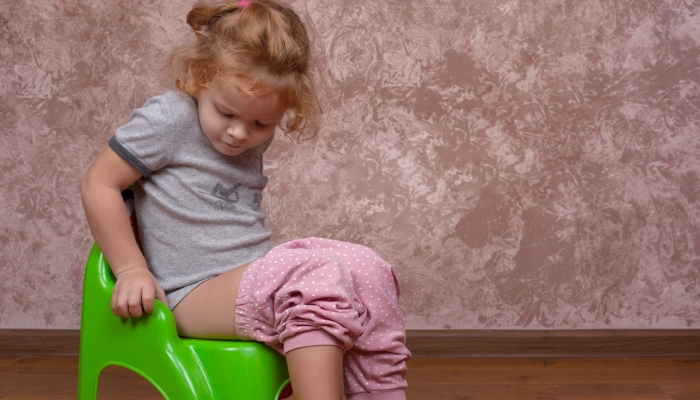
What Skills Are Needed to Potty Train?
All children need to achieve specific skills before they are physically and emotionally ready to toilet train. These attributes are the same for a child with autism as with any typically developing child.
Skills Needed to Potty Train
| Skill | Purpose |
| Communication | Verbalizing the need to use the toilet. |
| Fine Motor | Zippering. Grasping toilet paper. If non-verbal, signing toileting needs. |
| Gross Motor | Walking. Climbing onto the toilet. Balancing on the potty while sitting. Pulling up pants. Washing hands. |
| Cognitive (Mental) | Ability to recognize own bodily functions. |
Children with autism spectrum disorder and other developmental disabilities may be challenged in their communication, cognitive abilities, and motor skills.
Add in sensory processing issues, and toileting can be a nightmare for some autistic kids. Any number of issues can cause a roadblock in their toilet training process.
How Does Speech Delay Affect Potty Training?
We are all anxious to say bye-bye to diapers as soon as possible. If you have a child with a speech delay, you too can succeed in toilet training once you keep a few extra points in mind.
When autistic children have difficulty communicating their toileting needs, both you and your child may become frustrated right from the get-go. How will you know if they “need to go”? Can your child understand the toileting routine that you are trying to teach?
Further on in this article, tips to potty train non-verbal or speech delayed children will help you conquer this particular challenge.
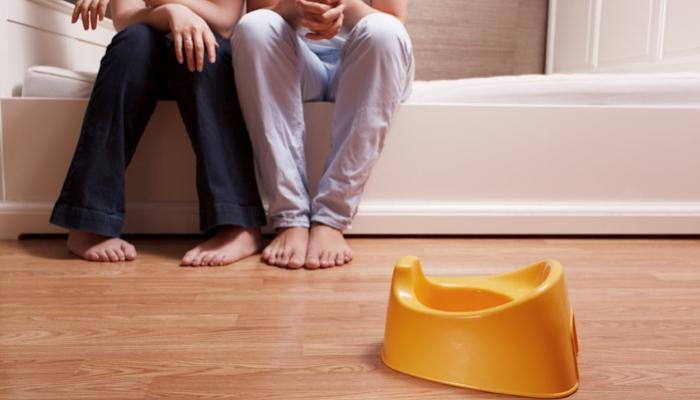
Signs That an Autistic Child Is Ready for Potty Training
This helpful article on and when is the right time to start is an excellent guideline on basic child readiness to begin the potty training routine.
Your autistic child may be unable to perform many of the typical “indicators of readiness”, such as pulling up their pants or verbalizing the need to use the toilet, due to their limitations. If that is the case, initiating training with only a few readiness skills is still beneficial.
When to Begin the Potty Training Process For a Child With Autism?
When can you begin a toileting routine for a child with autism or other developmental delays? Often, a good potty training age to start to potty train a child with special needs can be around 4 or 5 years old, but the proper age depends on your child’s level of development.
If your child shows interest in the toilet or discomfort or frustration over being soiled, you may want to initiate a toileting routine. Additionally, a predictable bowel schedule will make poop training easier.
If your child feels comfortable in the bathroom and sitting on the toilet, you are on your way toward potty training.
Children who show anxiety or frustration with the most straightforward introduction to the toilet or training routine may need a little extra time before introducing this new skill. Don’t feel like a failure or be inclined to push your child if this occurs; to do so will only lead to further frustration.
How Long Does It Take to Potty Train an Autistic Child?
How long does it take to potty train an autistic child? Each child is different, but one study demonstrated that some children could be out of pull-ups and continent in 1-2 days!
Different potty training methods each have specific goals for the length of time it will take to train. The 3 day potty training approach is one popular strategy that can be accomplished over a long weekend.
However, don’t be disappointed if your child takes much longer, as autistic children may present their own unique challenges in this process.
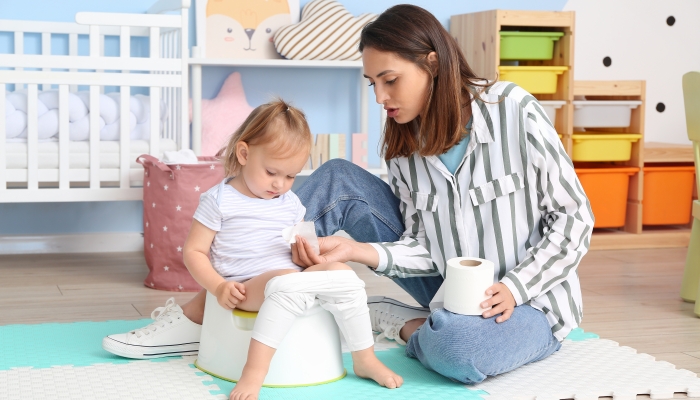
Potty Training Children With Autism
When it comes to potty training a special needs child or a neurotypical preschooler, much of the basic advice is similar.
It may be a great idea to begin researching some standard toilet training techniques that you are comfortable with before jumping into a program that may not be suitable for you or your child’s particular situation.
Although it is doubtful that there is a specific best potty training method, there may be one or several established programs that will be a good fit for your child.
Strategies for Successful Potty Training an Autistic Child
Specific approaches that help in the toilet training process for autistic children are:
- Keep a log of when your child pees and poops. Before the training begins, this prep step will give you an idea about your child’s elimination schedule.
- Prepare for potty training. Do your homework as discussed earlier and prepare your essentials for this next step. A comprehensive potty training kit will have you ready to roll when the time is right.
- Gradually introduce your child to the bathroom. Before any type of instruction begins, start having your child hang out in the bathroom. Allow him to get accustomed to the sounds, lighting, and how the toilet and faucet work.
- Share the bathroom with your child. Bring your child into the bathroom while you use it for elimination and washing your hands. This “introductory to bathroom 101” is an excellent time to see if your child is curious about the toileting process. Keep any responses simple and non-instructional at this point.
- Provide social stories. Autistic children respond best when they are fully prepared ahead of time for new challenges. Thus, incorporating a social story can help an autistic child to picture themselves using the toilet, washing their hands, and verbalizing their needs.
- Set up a (flexible) potty training schedule. This will give you an idea of how often to take your child to the potty. Kids like routine, and a potty schedule will help them to relax and know what is expected throughout the day regarding toileting. A timer is helpful for this step.
- Provide visual supports. Autistic children thrive on verbal prompts with visual backup. Potty training videos and picture books give both verbal and non-verbal children a good idea of what to expect. You can make a visual sequence poster picturing the order for using the potty to post in the bathroom to provide cues for every step in the toileting process.
- Utilize sign language if needed. For non-verbal children, learn (and teach your child) sign language for potty training to help in the training process. PECS cards (picture exchange communication system) are another easy way to communicate toileting needs with a non-verbal child.
- Stay calm and keep your expectations reasonable. Don’t beat yourself up over failures and setbacks during this period. By keeping your expectations low, you will not disappoint yourself if the process is delayed or unsuccessful (which can happen).
- Don’t forget rewards! You know your child best, so employ a prompt reward that he will enjoy to reinforce a desired response while training. Immediate positive reinforcement will spurn on the newly learned behavior.
- Chart success. Many parents employ a potty training sticker chart to keep a visual track of progress.
Dealing With Challenges in Potty Training a Child With Autism
One of the most common challenges related to toileting in children with autism is sensory issues.
As a young school nurse in an elementary school, I was surprised to find that many children did not flush the toilet. When I instructed them to go back into the bathroom and flush, they would reluctantly do so, only to come running out each time with their hands over their ears.
I quickly learned that many children do not like the toilet flushing sound, which is probably made louder in a public bathroom. I imagine the noise is even more disturbing for an autistic child with sensory issues.
This toilet anxiety can transfer over to your bathroom, so knowing your child and not pushing their sensory limits will be key to a positive training experience and outcome.
Some sensory issues to be aware of in the bathroom can be:
- Are the lights too bright? You can easily adjust the lighting to suit your child with a small lamp instead of glaring overhead lighting.
- Do noises frighten my child? Try to eliminate noises that may be triggering a response, such as the sound of having a bowel movement or flushing the toilet. What sounds you can’t avoid, try to screen with noise-canceling headphones, music, or a sound machine.
- Does your child have other fears that need to be addressed? It’s not uncommon for young children to be scared to poop on the potty.
- Is the toilet seat comfortable and easy to climb onto? Use a step stool to climb and support your child’s feet. Consider a padded toilet seat, if necessary.
- Wiping can be an issue. Is the toilet paper too rough? Many children resist wiping themselves. Don’t get too caught up on this one point. Wet wipes help to keep your child clean, and often children are not as averse to wiping when using the wipes. Have your child help pick out wipes that are either unscented or scented, depending on their preference. Wiping may be one of the last skills to conquer in the training process.
- Follow verbal and nonverbal cues. Your child may have other sensory issues that interfere with their training that may be less obvious. By carefully observing what they are not telling you, you may be able to pinpoint and correct whatever issue is setting them off related to potty training.
Conditions That May Hinder an Autistic Child When Potty Training
It’s a good idea to talk to your provider if your child has any of the following issues related to going to the bathroom:
- Severe constipation. Studies show that constipation in kids with autism is more prevalent than in other children.
- Bladder infections. Blood in the urine, wetting more frequently and foul-smelling pee are all signs that your child may have a urinary tract infection.
- Stress or change. Trying to potty train a child when there is much chaos, change or stress in the environment is not a good idea. Pick a stretch when there is relative calm and quiet to initiate the process.
Attempting to train an autistic child too early will prove unsuccessful. Continuing to pressure them when not ready will only delay the process in the long run. However, there is no magic window of when to potty train, so never feel it is too late to start.
Expect setbacks. Accidents and potty training regression are common in all kids, and your child is more likely to experience this issue during potty training.
Stay calm and practice patience while giving your child some leeway during these frustrating times. They should soon be ready to climb back onto the potty train if you continue to consistently reinforce their new skill without pressuring your child.
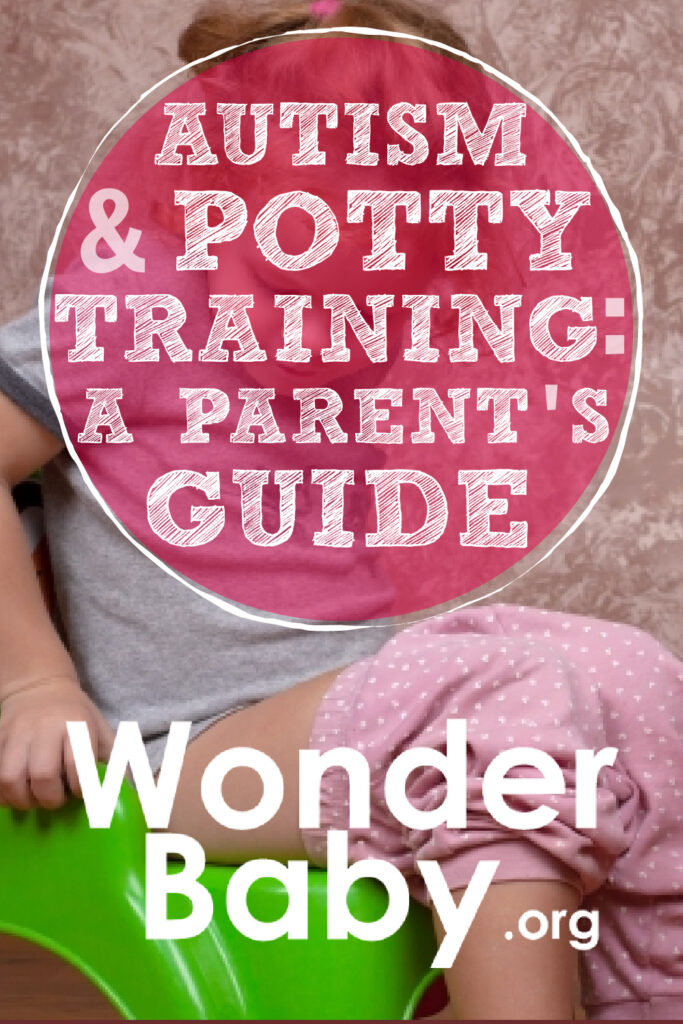
The information WonderBaby provides is not intended to be, and does not constitute, medical or other health advice or diagnosis and should not be used as such. Always consult with a qualified medical professional about your specific circumstances.
Related Posts
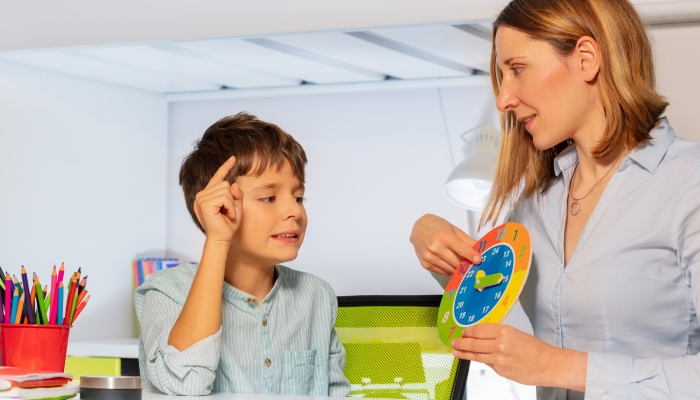
Autism
Developing Time Management Skills in Children with Autism: 7 Tips
Learn how you can use structure and visual aids to help your child with autism learn time management skills.
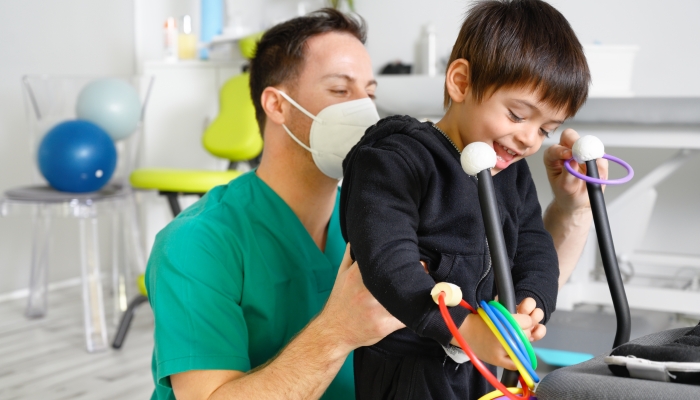
Autism
Occupational Therapy for Children with Autism: How It Can Make a Difference
Children with autism face challenges in many different areas. Occupational therapy can help children address these difficulties while having fun!
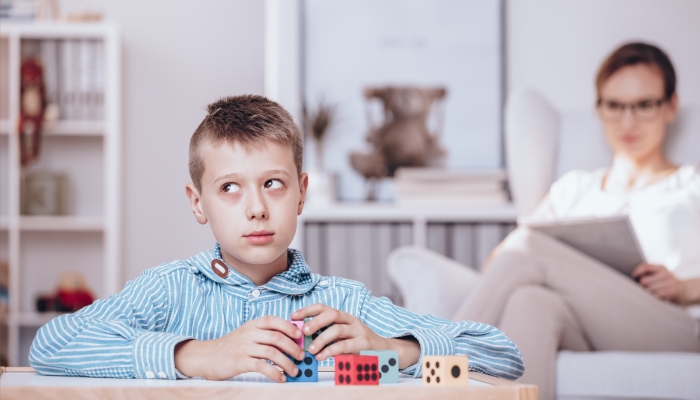
Autism, Behavior
OCD vs Autism in Children: How To Tell the Difference
OCD and ASD are fundamentally different, but their symptoms are very similar. Learn how to tell the difference to support your child.